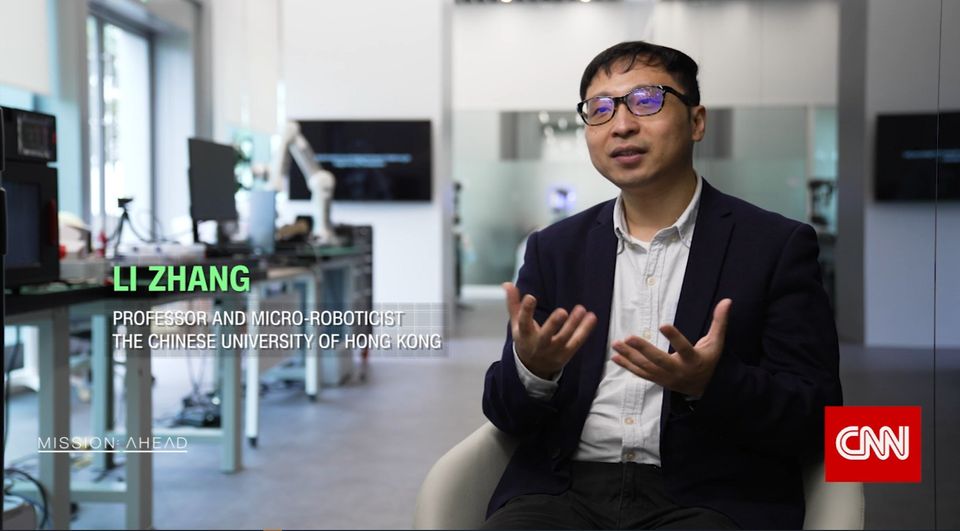Professor Li Zhang of the Department of Mechanical and Automation Engineering, Faculty of Engineering, The Chinese University of Hong Kong (CUHK), created a slimy fluid-based soft robot that performs the functions of both encircling objects and navigating tight-and-tortuous spaces by the control of magnetic fields, making it possible to be used inside the human digestive systems. Professor Zhang and his team mixed neodymium magnet particles with borax, a widely used household detergent, and polyvinyl alcohol, a kind of polymer, to form a slimebot that can be controlled by an external magnetic field. Robots that can either locate and hold onto objects or pass through tiny gaps. But it is less common to find a robot combing these two features. The team tested the robot in different scenarios, including finding and encircling a lost battery in a model stomach, moving it along a piece of wire and getting through narrow gaps. It could be deployed inside the human bodies to retrieve objects swallowed by accident. However, the magnetic particles in the slime are toxic. Before it can be used inside a real person’s body, the team needs to test thoroughly to make sure the toxic magnetic particles would not separate from the slimebot. The team also needs to modify the magnetic control mechanism, enhancing its performance such as moving at higher speed as an entity in the future. It is hoped that it can be used as a surgical tool and to take it out after the endoluminal surgery. The team also plans to apply for an animal licence to test the technology at the Multi-scale Medical Robotics Center (MRC) at the Hong Kong Science and Technology Parks Corporation. If the technology is promising, some human experimentation would be planned. Professor Zhang's main research interests include small-scale robotics and their applications for translational biomedicine. Before he joined CUHK as an Assistant Professor in 2012, he worked in Professor Bradley Nelson’s group as a post-doctoral fellow, and then as a senior scientist and lecturer in the Institute of Robotics and Intelligent Systems (IRIS), Swiss Federal Institute of Technology (ETH) Zurich, Switzerland. He has authored or co-authored over 270 papers, including Science Robotics, Nature Machine Intelligence, Science Advances, Nature Communications, TRO, IJRR, Annual Review of Control, Robotics, and Autonomous Systems, as the corresponding author. He is the recipient of the Hong Kong Research Grants Committee (RGC) Early Career Award in 2013, CUHK Young Researcher Award 2017, United College Early Career Research Excellence Merit Award 2018, CUHK Research Excellence Award 2019-20, and RGC Research Fellow (RFS) Award 2021/22. He is elected as the fellow of Royal Society of Chemistry (FRSC), and acts as a senior member of IEEE. |
|


